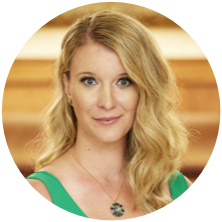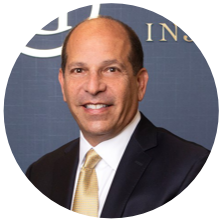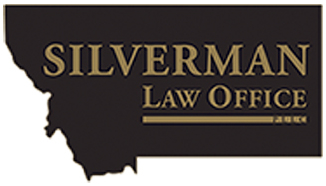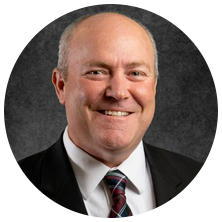What EEAT Means in Plain English
Google defines EEAT in its guidelines, but let’s break it down in practical terms for lawyers:
- Experience: Have you or your firm actually handled the issues you’re writing about? Are you sharing real-world knowledge?
- Expertise: Do you (or your authors) have legal qualifications that show you know what you’re talking about?
- Authoritativeness: Do other respected sites, associations, or organizations recognize you as credible? Do people cite or link to you?
- Trustworthiness: Can clients and Google trust the information on your site? Is it accurate, transparent, and easy to verify?
For lawyers, EEAT means you can’t just publish generic “What is personal injury law?” content and expect it to rank. You need to demonstrate, in multiple ways, that you are a practicing attorney with proven experience.
Why EEAT Matters for Law Firms
Google has a vested interest in making sure people get safe, reliable information. If someone types “Should I file for bankruptcy?” or “Do I need a lawyer after a DUI arrest?”, the wrong advice could ruin someone’s life. That’s why law firm SEO isn’t just about keywords anymore. It’s about trust signals. When Google sees you as a trusted authority, you rank higher. More importantly, potential clients are also more likely to call. EEAT builds both search visibility and conversion power.
How Lawyers Can Show Experience
Google wants to see that the person writing or publishing content has first-hand experience. For lawyers, this is an advantage — you already have it. You just need to display it.
- Write in a way that shows you’ve handled these cases before. For example, instead of “Bankruptcy can help you eliminate debt,” say, “We’ve helped hundreds of families eliminate debt through Chapter 7 bankruptcy in Virginia courts.”
- Use attorney bylines. Every blog or page should say who wrote it (or reviewed it) and link to an attorney bio.
- Add context about your work: years in practice, cases handled, practice areas, bar memberships.
This tells both Google and readers: this isn’t a content writer guessing; it’s a lawyer speaking from experience.
How to Demonstrate Expertise
Expertise isn’t just experience. It’s formal knowledge and qualifications. A law firm website can highlight expertise in several ways:
- Make sure every lawyer bio lists law school, bar memberships, court admissions, and professional associations.
- Link from blog posts back to the lawyer’s bio. That way readers (and Google) know who is behind the content.
- Keep content accurate. Outdated or misleading legal information erodes expertise signals.
- Where relevant, cite laws, statutes, or government sources. For example, if you’re writing about DUI penalties, link to your state’s Department of Motor Vehicles or statute database.
Google makes clear in its Search Quality Guidelines that for YMYL sites like law, expertise is not optional. It’s required.
Building Authoritativeness as a Law Firm
Authoritativeness comes from recognition by others. The more your name appears in credible places, the more Google sees you as a trusted source. Lawyers can build this in several ways:
- Earn backlinks from bar associations, local news outlets, and legal publications.
- Publish guest articles in respected journals or bar newsletters.
- Encourage citations and mentions of your firm’s resources. For example, if you write a comprehensive guide on “Steps After a Car Accident in Texas,” local blogs or media outlets may link to it.
- Collect awards, media appearances, and speaking engagements — then display them on your website.
The more signals you give that other experts respect you, the stronger your authority grows.
Trustworthiness: The Deciding Factor
If there’s one part of EEAT lawyers can’t overlook, it’s trustworthiness. Clients won’t call a firm that seems shady. Google won’t rank one either. Trust can be established through technical and content signals:
- Use HTTPS and keep your site secure.
- Display clear contact information: address, phone number, email.
- Maintain updated attorney bios with photos and credentials.
- Show reviews and testimonials (within ethical rules).
- Include disclaimers where needed (e.g., “This is not legal advice”).
- Keep content accurate, proofread, and free of factual errors.
Google itself emphasizes that trust is the most important EEAT factor in YMYL industries like law.
Practical Steps for Law Firms to Improve EEAT
If you’re wondering how to apply this today, here are practical, concrete steps your law firm can take:
- Update every attorney bio with credentials, bar admissions, and a professional headshot.
- Add author bylines to all blogs and pages, ideally written or reviewed by licensed attorneys.
- Link to authoritative sources when discussing laws or regulations.
- Create in-depth practice area pages with local context, case examples, and clear explanations.
- Highlight results and testimonials on your site (while complying with bar rules).
- Encourage reviews on Google and legal directories.
- Publish thought leadership pieces on bar association sites or local media outlets.
- Keep your content updated — laws change, and stale content signals low trust.
Taken together, these changes tell Google: “This is a real law firm, with real lawyers, providing reliable information.”
EEAT and Local SEO
Don’t forget: local SEO is part of EEAT. A verified Google Business Profile with reviews, consistent citations, and local photos is one of the strongest trust signals you can send. When your profile shows dozens of reviews from real clients, it’s not just Google that trusts you. Prospective clients do too.
Why EEAT = More Signed Clients
Law firm SEO isn’t about vanity metrics. Rankings and clicks only matter if they lead to cases. EEAT is a framework that helps you do both: rank higher on Google and earn trust with the people who land on your site. When your site shows real experience, expertise, and authority, and builds trust at every step, more clients call. It’s that simple.
And if you’re serious about competing with Avvo, FindLaw, and other big directories, EEAT is your edge. They can list lawyers. But they can’t show personal stories, proof, and human connection like you can.
That’s why we build every campaign at our SEO agency for lawyers with EEAT at the center. It’s not about stuffing keywords. It’s about showing the signals Google demands and clients care about.






































